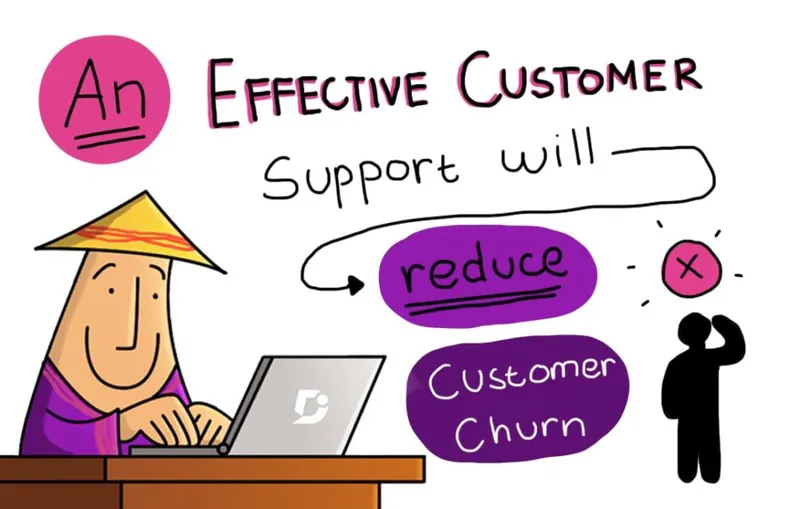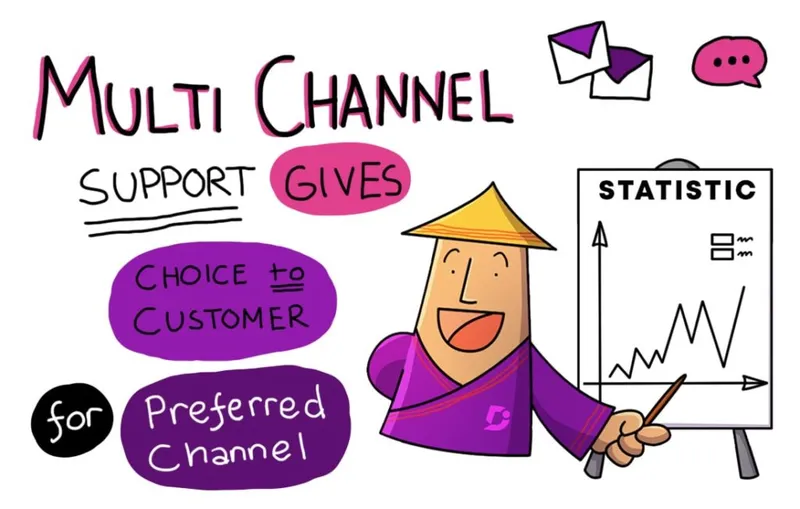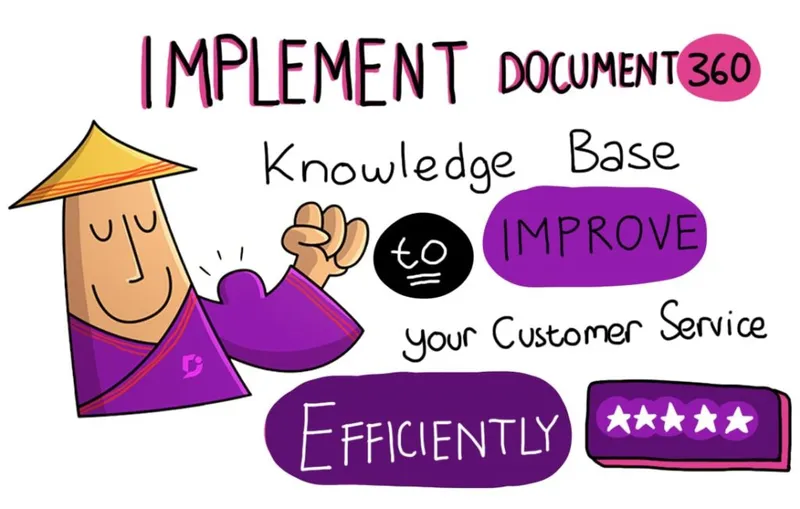
This is a user generated content for MyStory, a YourStory initiative to enable its community to contribute and have their voices heard. The views and writings here reflect that of the author and not of YourStory.

What Is SaaS Customer Support?

This is a user generated content for MyStory, a YourStory initiative to enable its community to contribute and have their voices heard. The views and writings here reflect that of the author and not of YourStory.

Around 85% of executives believe that delivering a great experience gives companies an advantage over the competition. And, 82% of B2B buyers agree that personalised service influences their loyalty.
In other words, a support team that delivers customised services should keep your customers happy. And, happy customers can yield higher profits. But, 78% of people are also likely to switch providers due to inconsistent services.
This means that you need to deliver high-quality support when your customers want it the most.
In this article, we’ll go over the definition of SaaS customer support. We’ll also discuss the difference between support and SaaS customer success. And, we’ll provide a few tips to help ensure that your team is delivering a great experience to your customers.
Contents:
- Defining Customer Support and Customer Success in SaaS
- Examples of Companies that Deliver Outstanding Customer Support
- 5 Tips to Improve the Quality of Your Customer Support
- Measure the Right Statistics
- Cultivate a Knowledgeable Team
- Deliver Multi-Platform Support
- Design a Scalable Support Structure
- Implement a Customer-Centric Mentality
- Building a Reliable SaaS Customer Support Department
Defining Customer Support and Customer Success in SaaS
Both SaaS customer support and SaaS customer success fall under the umbrella of customer service. That said, these should be two independent initiatives that work closely together. They share the same purpose but have different approaches when it comes to interacting with clients.
Your customer support team works as a traditional safety net for your clients. Customers reach out for help and your support agents assist them with their needs. The success team, on the other hand, should contact your clients and work with them to achieve their goals.
This is why both of these entities need to work closely together. Aside from sharing a similar toolset, they also need to deliver consistent services on both ends. And, they need to be on the same page when it comes to providing information to your customers. This will ensure a great experience for your clients, regardless of who they’re interacting with.
Why is Customer Success Becoming a Necessity?
Customer success is a major buzzword among SaaS and tech companies as a whole. This new mentality revolves around the idea that businesses should take a hands-on approach with their customers.
Having a reliable success team in place can improve the relationship with your clients for many reasons. Remember that most customers never meet their SaaS provider in person. Your success agents work as the first point of call, but they are also the voice of your brand.

At the same time, not all users find software intuitive. Your success agents can usher your clients and introduce them to all the features your platform has available. They can receive assistance over the phone, via email, or even through a specific knowledge base article.
With a successful team, you can make sure customers are using your products and getting the most out of them. And, you’ll be able to monitor their performance and identify certain behavioural patterns as well.
Examples of Companies that Deliver Outstanding Customer
Support
There are many SaaS businesses that are known for delivering stellar support. Some great examples include:
Chargify
Chargify is a recurring billing software. It’s an awesome tool for organisations that rely on subscriptions. And, the company is also known for delivering a great experience through a dedicated success team. They focus on identifying customers who are at risk of cancelling the service. Then, the success agents work with clients to find effective solutions to their challenges. In some cases, it may even lead to an upsell and a customer that’s more satisfied with his or her service.
MailChimp
This popular email automation platform is also a great example of SaaS customer support. And, the best part is that they manage to onboard and familiarise customers through a series of automated emails. Which, in turn, saves them valuable resources without sacrificing customer experience.
Basecamp
Basecamp has earned a reputation for delivering excellent service that verges on perfect. Unlike most customer support leaders, they don’t provide 24/7 support and focus only on a couple of channels. But, what they lack in availability they make up in quality. Basecamp boasts of a dedicated support team that is knowledgeable and efficient. And, their team actively collects feedback to make improvements to the platform.
5 Tips to Improve the Quality of Your Customer Support
The definition of a great experience will vary depending on your industry and, of course, your clients. Companies can use software for a variety of applications. And, the more complex the application, the more assistance your clients will require.
Here are some tips that will help you provide quality assistance to your clients.

Measure the Right Statistics
Most companies keep track of their customer support metrics. Likewise, you should establish goals and monitor your success team. But, you have to make sure you identify the statistics that give you a true idea of how they a both performing.
Some metrics you may find useful include, but are not limited to:
- Churn rate
- Customer retention costs
- Monthly recurring revenue
- Customer acquisition costs
- Average revenue per account
- Customer lifetime value
Cultivate a Knowledgeable Team
One of the best ways to show customers you value them is by respecting their time. And, having a knowledgeable team can translate to fast and accurate services.
Cultivating a savvy team may take time, it can improve your company’s internal operation. Plus, you can always ease the transition by setting up a knowledge base.

A knowledge base is a repository or collection of company resources. Having a platform like Document360 can help improve internal communications. And, it can also yield a knowledgeable team that provides swift service.
Deliver Multi-Platform Support
Today, B2B customers are starting to turn to alternative platforms to contact their providers. Social media and live chat are among the most popular channels. That said, many still prefer phone and email support as well.
Keep in mind that delivering multi-platform support is not enough. You also need to make sure that the service is consistent across all channels. If not, you’ll end up with a confused client base that may be likely to migrate elsewhere.
Design a Scalable Support Structure
SaaS companies can grow unpredictably, especially during certain seasons. Therefore, you should ensure that you’re prepared to handle surges in support requests. Long hold times can have a devastating effect on any SaaS business. Even well-established platforms can lose customers if they handle their question on time.
One option to creating a model that’s scalable by nature is by offering a variety of communication channels. You’ll be able to spread the workload across different sectors, but consistency should remain a priority.
Implement a Customer-Centric Mentality
A large portion of SaaS companies fails to provide a good experience because they have a product-centric approach. On the contrary, keeping customers at the centre of your operation will encourage your support team to find effective solutions.
There is no exact formula for establishing a customer-centric approach. With this in mind, you may want to start by surveying your team and asking how they handle customer interactions. This will give you an idea of what areas need improving and give you a chance to ensure all your team members are on the same page.
Building a Reliable SaaS Customer Support Department
Customer support is the heart and soul of any SaaS business. Without assistance, a large portion of your customers would struggle with your product. But, many software companies fail to deliver great support, especially at crucial times.
The tips above should help you analyse and improve the quality of your SaaS customer support. You just have to ensure that your success and support teams are both on the same page. And, remember to always strive to create a delightful experience that yields a happy client base.



